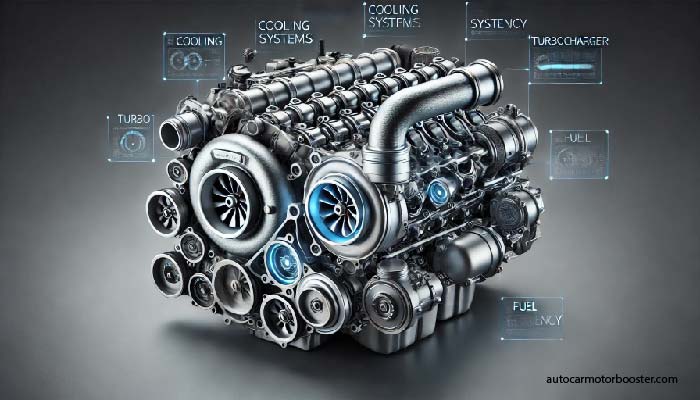Turbocharging has gained popularity among car enthusiasts and casual drivers alike, offering improved engine performance and efficiency. However, various myths surround this technology, often leading to misunderstandings. In this article, we’ll address and debunk some of the most common misconceptions about turbocharging, so you can make informed decisions and understand the real benefits of turbocharged engines.
Myth 1: Turbocharging Causes Engine Damage
Many believe that adding a turbocharger to an engine will reduce its longevity or cause engine damage over time. While this can be true if done improperly, modern turbocharged engines are engineered to handle the additional boost without compromising durability. With advances in engineering and cooling systems, turbocharged engines today can last as long as naturally aspirated engines if maintained properly.
Truth:
Engine manufacturers design turbocharged engines with stronger materials and advanced technologies that ensure durability. Proper maintenance and high-quality oil can prevent any wear or damage, allowing your engine to operate smoothly even with a turbocharger.
Myth 2: Turbochargers Only Improve Speed
It’s a common belief that turbochargers are solely for those seeking to increase vehicle speed. However, turbochargers are not only about speed; they enhance fuel efficiency as well. Turbocharging enables smaller engines to produce power equivalent to larger engines, resulting in better fuel economy.
Truth:
A well-designed turbo system optimizes the engine’s power and efficiency, providing you with more torque at lower RPMs. This means you get a powerful engine with potentially better fuel economy, especially when driving at consistent speeds.
Myth 3: Turbocharged Engines Require More Maintenance
Some drivers shy away from turbocharged vehicles due to the misconception that they require extra maintenance. While turbocharged engines do need regular oil changes and proper cooling, the maintenance is typically no more extensive than that of naturally aspirated engines.
Truth:
Routine maintenance, such as changing the oil filter and using the right oil grade, is essential for all engines, whether turbocharged or not. Turbochargers, in fact, help maintain the engine’s efficiency and longevity when properly maintained.
Myth 4: Turbo Lag Makes Turbocharging Inefficient
Turbo lag, the slight delay between pressing the accelerator and the turbocharger kicking in, was once a common complaint. With advancements in technology, modern turbos experience minimal lag, making the experience seamless for drivers.
Truth:
Today’s turbochargers are designed to respond quickly, reducing lag and delivering almost instantaneous power. Additionally, twin-scroll turbochargers and variable geometry systems have further minimized turbo lag, making it barely noticeable for most drivers.
Myth 5: Turbocharging Increases Fuel Consumption
One of the biggest misconceptions is that turbocharging leads to higher fuel consumption. In fact, turbochargers help engines become more fuel-efficient by increasing power without increasing engine size.
Truth:
When driven responsibly, turbocharged engines can actually improve fuel efficiency. This is because the turbo provides extra power without requiring a larger, heavier engine, which would consume more fuel.
FAQs
Q1: Do turbocharged engines require special maintenance?
A1: Turbocharged engines need routine maintenance, but it’s no more complicated than that of regular engines. Regular oil changes and using quality oil are key to maintaining turbocharged engines.
Q2: Does a turbocharger only increase speed?
A2: No, turbochargers enhance both speed and fuel efficiency, making the engine more powerful without increasing fuel consumption when driven properly.
Q3: How does a turbo affect fuel efficiency?
A3: Turbocharging allows smaller engines to produce similar power to larger engines, often resulting in better fuel economy when driving at consistent speeds.
Q4: Is turbo lag still an issue in modern turbochargers?
A4: Turbo lag has been minimized with modern technologies, like twin-scroll and variable geometry turbos, making them very responsive.
Q5: Do all turbocharged engines have shorter lifespans?
A5: Not necessarily. Modern turbocharged engines are built with durable materials and can last as long as naturally aspirated engines if maintained well.
If Like This Article Visit Our Website. Collect From Wekiapedia
